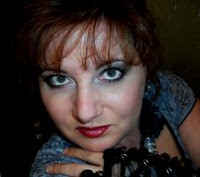 Setting Up Your Own Imprint
Setting Up Your Own ImprintGuest Post by Lenore Skomal
When I finally decided to publish my first book under my own
imprint, it was like falling off a log—in a good sense. As in easy. After years
of publishing books within the publishing industry, I found my biggest obstacle
to breaking out on my own was my lack of knowledge compounded with deep fear.
But as it is with most things worth doing, I had to walk through that fear to gain the knowledge and get to the other side. The worst thing that could happen, I reckoned, was I could fail. But I had to define what failure was. Approaching it from all angles, I finally realized that there was no failure in this endeavor. At the end of the process, I would have my book in hard copy and Kindle, available to everyone. If I for some reason didn’t make it through the process, then I would have no regret because at the very least, I tried. And it wouldn’t be the first time I did that. My best lessons come from dreams unrequited.
But as it is with most things worth doing, I had to walk through that fear to gain the knowledge and get to the other side. The worst thing that could happen, I reckoned, was I could fail. But I had to define what failure was. Approaching it from all angles, I finally realized that there was no failure in this endeavor. At the end of the process, I would have my book in hard copy and Kindle, available to everyone. If I for some reason didn’t make it through the process, then I would have no regret because at the very least, I tried. And it wouldn’t be the first time I did that. My best lessons come from dreams unrequited.
I hired a designer,
an editor and a proofreader, and set the wheel in motion. My book, Burnt
Toast: Musings on living, loving and saying goodbye, had already been
edited several times because it’s an anthology of my humor columns that have
run over the past 15 years in newspapers around the country. But just to ensure
a clean read, I hired a pro to read it as a collection and to just make sure.
My designer has her master’s in graphic design and was completely comfortable
with the process of designing the cover and laying out the text. I even asked
her to shepherd the book through the physical process of uploading and proofing
once I decided to print with CreateSpace, Amazon’s POD.
CreateSpace offers all kinds of add-ons for a price. I chose none of them and opted to do it all myself. One service is offering to apply for a Library of Congress Control number (LCCN), which is used by librarians to catalogue books and should be included in every book. The service costs $49 if you have CreateSpace do it, but with a minor amount of research, I found I could apply for it for free. On the application, it asks for the publishing house’s name, and thus was born Lenore Skomal Press. It took about a week to get the PCN (Preassigned Control Number). Once the book was printed, I had to mail the LOC a copy in order to be considered for inclusion in the catalogue.
So what does that mean? Just because my name is now documented with the Library of Congress doesn’t make me a publishing house, as many know. And if I don’t publish other writer’s works under my imprint, then I am not really considered a publisher at all, especially if I want to compete for the more prestigious awards such as the National Book Award. Kirkus Review and Publisher’s Weekly won’t even look at books published as mine are, but they do offer review services for a price. No guarantees however. My personal belief is that this has to change over time.
Given so few obvious benefits, you might wonder why set up an imprint, especially if it is only on paper and in my head. It gave me one vital thing: possibilities. As I learn more about distribution, which is next on my list, trial and error experiences in this field will give me insight into whether I can actually help other authors.
For more on that, I say, stay tuned.
CreateSpace offers all kinds of add-ons for a price. I chose none of them and opted to do it all myself. One service is offering to apply for a Library of Congress Control number (LCCN), which is used by librarians to catalogue books and should be included in every book. The service costs $49 if you have CreateSpace do it, but with a minor amount of research, I found I could apply for it for free. On the application, it asks for the publishing house’s name, and thus was born Lenore Skomal Press. It took about a week to get the PCN (Preassigned Control Number). Once the book was printed, I had to mail the LOC a copy in order to be considered for inclusion in the catalogue.
So what does that mean? Just because my name is now documented with the Library of Congress doesn’t make me a publishing house, as many know. And if I don’t publish other writer’s works under my imprint, then I am not really considered a publisher at all, especially if I want to compete for the more prestigious awards such as the National Book Award. Kirkus Review and Publisher’s Weekly won’t even look at books published as mine are, but they do offer review services for a price. No guarantees however. My personal belief is that this has to change over time.
Given so few obvious benefits, you might wonder why set up an imprint, especially if it is only on paper and in my head. It gave me one vital thing: possibilities. As I learn more about distribution, which is next on my list, trial and error experiences in this field will give me insight into whether I can actually help other authors.
For more on that, I say, stay tuned.
Lenore Skomal's Bio:
Winner of multiple awards for blogging, literature, biography and humor, Lenore Skomal's catalogue spans many genres. With 30 years of writing experience, 17 books published and a daily blog, the consistent themes in her work are the big issues the human experience and adding depth and voice to the intricacies involved in living a multi-dimensional existence. Skomal has won several Society of Professional Journalist Awards, Whidbey Island Writer's Conference honorable mention for best fiction, Writer's Digest 73rd Annual Fiction Contest, New York Public Library's Best Books for Teens 2003, and the 2012Next Generation Indie Book Award for humor for her anthology “Burnt Toast,” her debut book under her own imprint. From journalism, to literary fiction, to humor and biography, Skomal's writing is consistent, if not in genre, then in message. Her first novel, “Bluff” will be released Oct. 1. Check out her Website or Facebook Page.
















